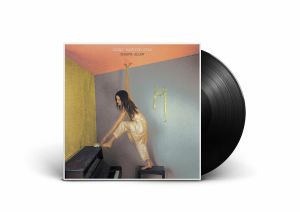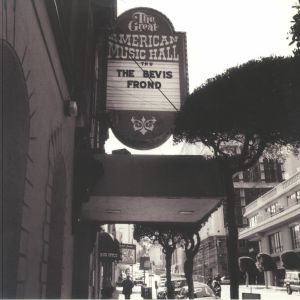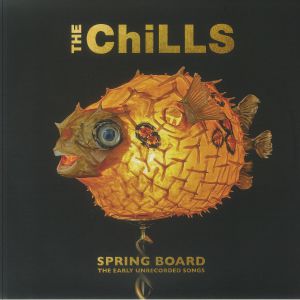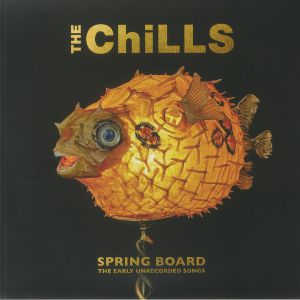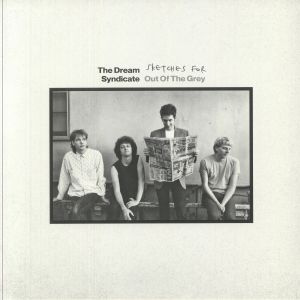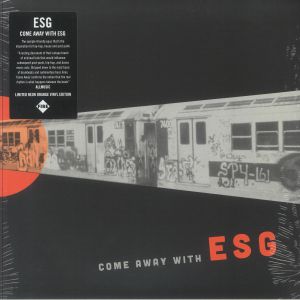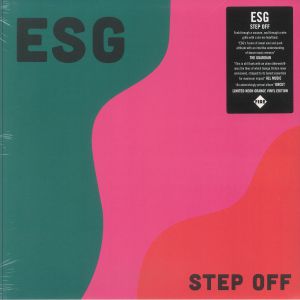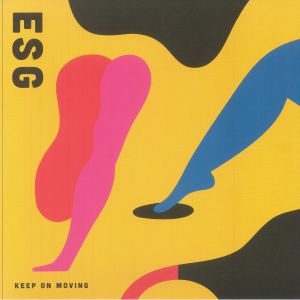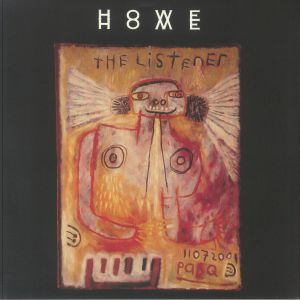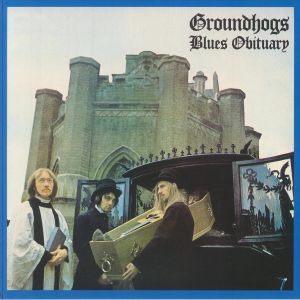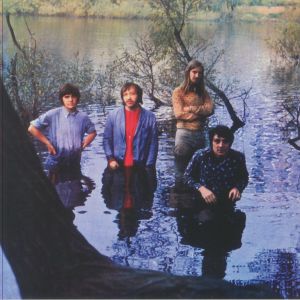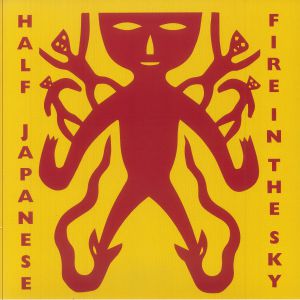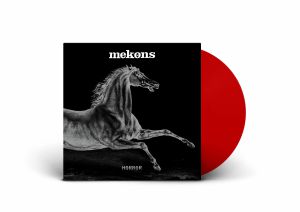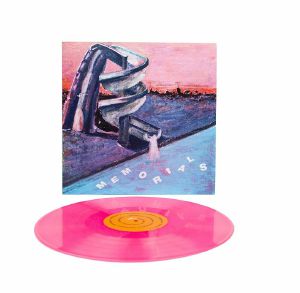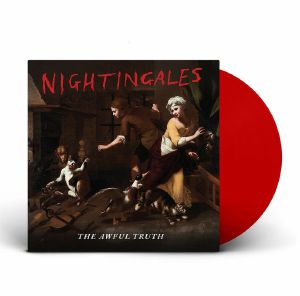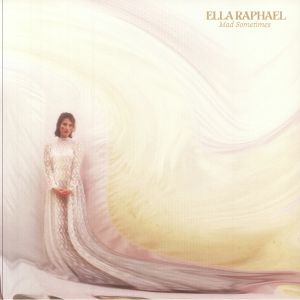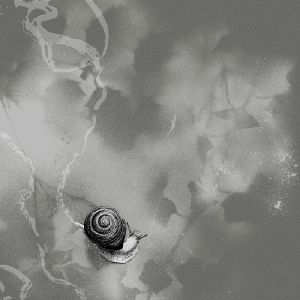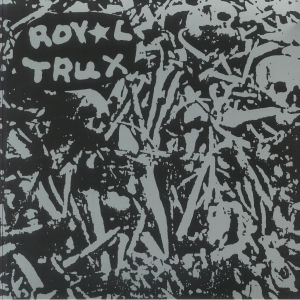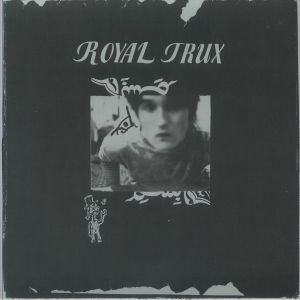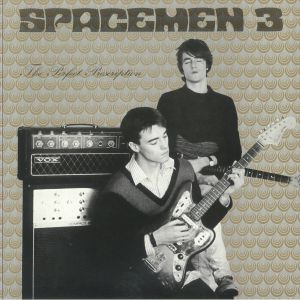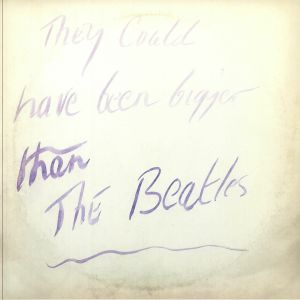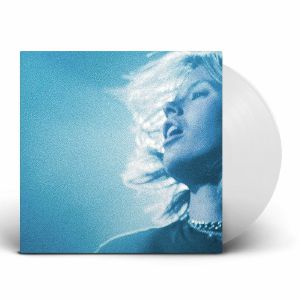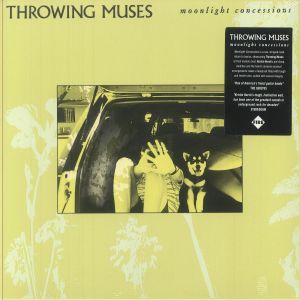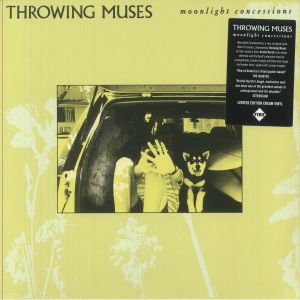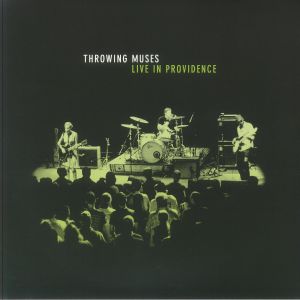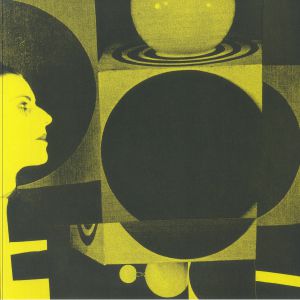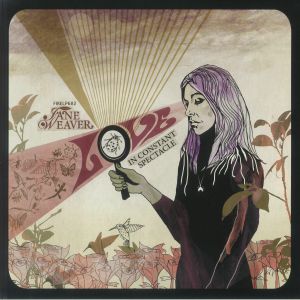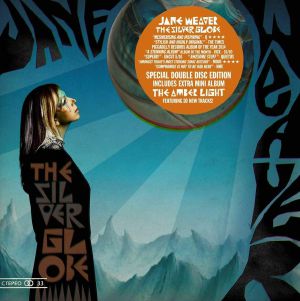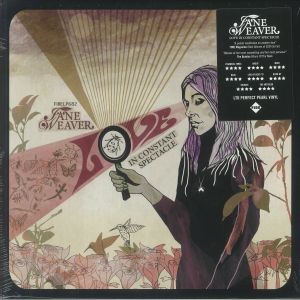Receive new release alerts for Fire
Filter
Genre
Type
Music
Format
Featured
Release Title
Price
Tags
Fire Vinyl & CDs
Browse the latest Vinyl & CD releases on FireSimilar labels:
Items 1 to 37 of 37 on page 1 of 1
Eight Pointed Star (LP + MP3 download code + autographed art print)
Cat: FIRELP 747. Rel: 06 Jun 24
Indie/Alternative
in stock $24.41
Live At The Great American Music Hall San Francisco (Record Store Day RSD 2024) (2xLP + MP3 download code)
Cat: FIRELP 609. Rel: 07 May 24
Psych/Garage Rock
in stock $31.07
Spring Board: The Early Unrecorded Songs (limited gatefold gold vinyl 2xLP + MP3 download code in spot-varnished sleeve (indie exclusive))
Cat: FIRELP 767G. Rel: 27 Feb 25
Indie/Alternative
Review: The world lost one of the all-time great indie songwriters when The Chills leader Martin Phillipps passed away in 2024. The New Zealand jangle-pop pioneers started out in the 80s, writing memorable melodies and beautiful harmonies and went on to have a career lasting more than 40 years. They helped coin the 'Dunedin sound' - a catch-all name given to the indie scene in the university city of Dunedin in the remote east coast of the South Island of New Zealand - a place that punched way above its weight in terms of cultural relevance and great indie music for its size. This release comes as a reminder of their greatness and includes a whopping 20 songs (it's a double LP and on gold(!)) from the band's early years revisited. As is often the case with tireless creatives, there's a vault of unfinished work that often never gets completed. Philipps dedicated moments at the end part of his life to fleshing out these song ideas, resulting in their completion nearly 40 years after they were written. 'If This World Was Made For Me' is the first song to be unearthed from this collection and is as beautiful as indie psychedelia gets with Philipps' vocal harmonies transcendent in their splendour.
… Read more in stock $33.28
Spring Board: The Early Unrecorded Songs (gatefold 2xLP in spot-varnished sleeve)
Cat: FIRELP 767. Rel: 27 Feb 25
Indie/Alternative
Review: Jangle pop pioneers The Chills came out of the Dunedin scene in the 80s, which grew to become one of the most important movements in indie rock history, largely thanks to the output on the Flying Nun label, which The Chills were apart of when they first started out. The Chills had their own Brian Wilson in Martin Phillipps: a prolific songwriter with an ear for melody and harmony up there with the best that's ever been. Sadly, he passed away in 2024, but this album is released as a reminder of just how good he was and it's a timely balm for the grief felt within the indie rock community. The songs here come from work Phillipps did shortly before he died, where he opened his vault of unfinished songs that he started early in the Chills' career and fleshed them out to finally release them all these years later. We can assure you; it's been well worth the wait. Sublime stuff.
… Read more in stock $29.95
Sketches For Out Of The Grey (Record Store Day RSD 2025) (limited LP + MP3 download code) (1 per customer)
Cat: FIRE LP782. Rel: 01 May 25
Indie/Alternative
in stock $26.07
Review: This special The 35th-anniversary reissue of Come Away with ESG celebrates the groundbreaking debut album by the Bronx sisters. It's a proper genre-defying classic that shaped hip-hop, house, and post-punk with its signature minimalist funk. ESG's stripped-down sound is built on raw drumbeats and hypnotic bass lines and defies traditional labels with a more groove-driven, horn and organ-free alternative to funk. Their influence spans decades and has inspires artists across several genres which is why Come Away remains a classic and one that proves that true rhythm lies in the spaces between the beats.
… Read more in stock $26.07
Review: To celebrate the 35th anniversary of this iconic album, it has been reissued on vinyl in various colours including this organ neon sizzler. Come Away with ESG was the groundbreaking debut from the Bronx-based sister group and is recognised as a genre-defying classic that played a pivotal role in shaping hip-hop, house and post-punk. ESG's minimalist funk, stripped of horns and heavy organ, offered a fresh take on the genre. Decades later, their impact is undeniable, influencing artists across multiple styles. This album is a testament to the power of rhythm-not just in the beats, but in the spaces between them.
… Read more in stock $26.07
Keep On Moving (reissue) (neon orange vinyl LP + MP3 download code)
Cat: FIRELP 233C. Rel: 06 Mar 25
Funk
Review: To mark the 35th birthday of this album it has been reissued on vinyl in different colours, so take your pick. As any funk lovers will know, Come Away with ESG is the Bronx sisters' pioneering debut album and a genre-blurring masterpiece that is accepted to have very much helped shape hip-hop, house, and post-punk with its signature minimalist funk. ESG's raw, stripped-down approach offered a fresh alternative to traditional funk in that it was free of horns and heavy organ. Decades later, their influence remains undeniable and has inspired countless artists across multiple genres. This record is all the proof you need that the magic of rhythm isn't just in the beats-it thrives in the spaces between them.
… Read more in stock $25.51
The Listener (reissue) (Record Store Day RSD 2025) (limited maroon vinyl LP + insert + MP3 download code) (1 per customer)
Cat: FIRELP 203. Rel: 01 May 25
Folk/Americana
in stock $24.41
Blues Obituary (reissue) (gold vinyl LP + insert + MP3 download code)
Cat: FIRELP 506C. Rel: 03 Oct 24
Blues
BDD
Daze Of The Weak
Times
Mistreated
Express Man
Natchez Burning
Light Was The Day
BDD (Mono)
Gasoline
Review: The Groundhogs' second album, Blues Obituary, released in 1969, marks a significant evolution in their sound, showing the band's ambition to transcend traditional blues. Tony McPhee and his band delve into a fusion of electric British blues and progressive psychedelic rock, resulting in a wonderful sonic journey. The opening track, 'B.D.D.', demonstrates their shift away from conventional blues structures with its refined guitar work and smoother melodies. Tracks like 'Daze of the Weak' highlight McPhee's extraordinary guitar work, propelling the music beyond mere blues variations. The album also features a diverse range of influences, from swamp rock in 'Mistreated' to the haunting 'Natchez Burning', reminiscent of classic southern rock bands. The experimental closing track, 'Light Was the Day' evokes their innovative spirit with freeform guitar and improvisational drumming. Blues Obituary is an essential listen that signals the Groundhogs' potential for greatness, as they chart their course into new musical territories. Highly recommended for those seeking a blend of blues and psychedelia.
… Read more in stock $26.07
Scratching The Surface (reissue) (limited gold vinyl LP + MP3 download code)
Cat: FIRELP 505C. Rel: 03 Oct 24
Psych/Garage Rock
Review: The Groundhogs' debut album, Scratching The Surface, stands as a milestone in the British blues movement of the late 1960s. Released in 1968, this record captures the raw energy of the era, blending blues authenticity with a distinctive edge. Unlike their later works, such as Thank Christ for the Bomb and Split, this album sticks closely to the classic blues format, heavily influenced by the sounds of early Fleetwood Mac and Savoy Brown. Featuring the original lineupiTony McPhee, Peter Cruickshank, Ken Pustelnik, and harmonica player Steve Ryeithe album has both McPhee's original compositions and Rye's blistering contributions. Rye's 'Early in the Morning' and 'You Don't Love Me' are standout tracks, while the reworking of Muddy Waters' 'Still A Fool' is fierce and memorable. Newly remastered, this vinyl reissue restores the album's rootsy, moody blues sound with remarkable clarity.
… Read more in stock $26.07
Thank Christ For The Bomb (reissue) (gatefold gold vinyl LP + postcard)
Cat: FIRELP 507C. Rel: 17 Oct 24
Blues
in stock $26.07
Cat: FIRELP 310. Rel: 01 May 25
Indie/Alternative
in stock $23.29
Review: Beginning life in the late 70s as a Leeds based art collective, The Mekons have gone on to become one of the longest-running, most prolific and sonically diverse acts to be considered part of the first wave of British punk. Spanning numerous decades, projects and literal continents, the sprawling array of visionary contributors return with the succinctly titled Horror; a work written towards the end of 2022 that showcases their expansive yet solely unique approach, drawing on elements of dub, country, harsh noise, rock & roll, electronica, punk, music hall, polka and even waltz. Myriad vocalists lead differing sonic journeys such as the Jon Langford-led 'Mudcrawlers' telling the story of the Irish famine and subsequent refugees traversing to Wales, whereas Rico Bell leads the charge on the harrowing folk-horror climate change breakdown 'Fallen Leaves', with swelling violins painting an aural tapestry akin to Rolling Thunder era Dylan sitting on a dimly lit rolling green hill accompanied by The Pogues. Ranking somewhere between the collective's 23rd to 25th album (depending on which member of the fanbase or artists themselves you ask), Horror marks their first work for Fire Records.
… Read more in stock $26.35
in stock $26.07
Memorial Waterslides (limited orange vinyl LP)
Cat: FIRELP 766C. Rel: 20 Feb 25
Post Rock/Experimental
in stock $27.47
Flamingo Tower (limited "flamingo" pink vinyl LP + MP3 download code)
Cat: FIRELP 777. Rel: 06 Mar 25
Balearic/Downtempo
Review: Los Angeles-based Monde UFO - a shadowy collective helmed by multi-instrumentalist and producer Ray Monde - has a well-earned reputation for being one of music's more hard-to-pigeonhole acts, with their two previous albums variously mixing and matching elements of improvisational jazz, dream pop, Latin rhythms, space rock and lo-fi experimentalism. They're on a similarly breezy, blurred-at-the-edges tip on third album Flamingo Tower, attractively sashaying between jazz-flecked, string-laden dream pop ('Samba 9'), richly percussive post-punk jazz ('119', with its subtle nods to Tony Allen and Ginger Baker's infamous drum battle in support of Fela Kuti), cinematic noir-jazz (the effects-laden excellence of 'Solitaire') and much more besides.
… Read more in stock $24.14
in stock $24.69
Mad Sometimes (gold vinyl LP + MP3 download code (indie exclusive))
Cat: FIRELP 753. Rel: 17 Oct 24
Folk/Americana
in stock $26.07
Deep Below (grey vinyl LP + MP3 download code in spot-varnished sleeve)
Cat: FIRELP 712. Rel: 06 Feb 25
Indie/Alternative
in stock $27.47
Mountain (limited 'snowstorm' clear white & purple splattered vinyl LP in die-cut sleeve)
Cat: FIRELP 783. Rel: 20 Mar 25
Experimental/Electronic
in stock $25.51
Provenance 1988: Royal Trux Demo (Record Store Day RSD 2025) (limited white vinyl LP + MP3 download code) (1 per customer)
Cat: FIRELP 773. Rel: 01 May 25
Psych/Garage Rock
Review: Sometimes, Record Store Day releases really do come through, and this is one of them as it unearths extremely rare 1988 demo recordings from alt-rock trailblazers Royal Trux, previously only circulated on a handful of cassettes in 1998. Now available for the first time on wax, the collection captures the raw, unfiltered energy that preceded their breakthrough Twin Infinitives and features early versions of 'Walkin' Machine,' 'Cut You Loose,' 'Gold Dust' and a cover of Neil Young's 'Time Fades Away,' These demos really give you a window into the band's formative chaos and brilliance and highlight the uncompromising vision that made Royal Trux such favourites.
… Read more in stock $24.41
Untitled (remastered) (limited white vinyl LP + MP3 download code)
Cat: FIRELP 717. Rel: 31 Oct 24
Indie/Alternative
Air
Move
Hallucination
Junkie Nurse
Sometimes
Lightning Boxer
Blood Flowers
Sun On The Run
Review: Released in 1992, Untitled marked Royal Trux's third album and solidified their status as pioneers of the lo-fi genre. This album transitioned the duo, Neil Hagerty and Jennifer Herrema, into a constantly evolving collective of musicians. As part of Fire Records' remastered series, Untitled comes pressed on white vinyl with updated monochrome and silver artwork. Stepping away from the dense layering of their previous work, Twin Infinitives, Royal Trux embraced a raw rock 'n' roll aesthetic filled with the deformed grandeur of their influences. Drawing from their experiences and subconscious "radio stations," the eight-song collection weaves together twisted melodies and memories. Hagerty's gritty blues roots complement Herrema's seductive yet snarling vocals, capturing a sense of intimacy akin to a night at the Chelsea Hotel, where the characters of the 90s swagger through their lyrics. Tracks like 'Junkie Nurse' delve into themes of addiction and redemption, reflecting a hope that even the most broken individuals can help each other. While some noise elements persist, Untitled showcases a clear shift toward songwriting, revealing Royal Trux as a stunning indie rock band that continues to resonate with a transgressive generation and influences future duos like The White Stripes and The Kills.
… Read more in stock $26.07
Twin Infinitives (reissue) (gatefold silver vinyl 2xLP + MP3 download code)
Cat: FIRELP 716. Rel: 13 Jun 24
Indie/Alternative
Review: Perhaps the most abstract, clangorous and genre-defying entry in the formidable Royal Trux catalogue, 1990s Twin Infinitives is a sprawling, tactile odyssey punctuated by Neil Hagerty's acerbic guitar stabs and Jennifer Herrema's sleazy vocal free association. Through the thick squalling gauze witch Hagerty and Herrema superimpose on each track, ghosts of A/B song form emerge and disintegrate, with blues licks and disarmingly gentle croons offset by rumbling mechanical loops and sonic shrapnel. It really feels like the ground zero, the most amoebic and uncompromising launchpad for what would become the Royal Trux sound. Highlights include the Henry Flynt-esque 'Ice Cream', the cavernous flute peals of 'Osiris' and the rollicking, fuzz-damaged 'Glitterbust'. One of the best from one of the best!
… Read morePlayed by: Juno Recommends Rock/Indie
in stock $26.07
Royal Trux (Record Store Day RSD 2024) (LP + MP3 download code)
Cat: FIRELP 715. Rel: 07 May 24
Indie/Alternative
in stock $27.47
The Perfect Prescription (reissue) (LP + MP3 download code)
Cat: FIRELP 016X. Rel: 13 Jun 24
Psych/Garage Rock
Review: Countless bands sing about mind-altering substances, but none capture the experience quite like Spacemen 3. By combining the Suicide ethic of one-chord blues with maximalism, they simulate the infinite layers of a trip with a sound that is often imitated but never replicated. The reissued A Perfect Prescription exemplifies this, showcasing the beautiful stages of a high - from energetic and hazy highs to downbeat and drone-y lows. The album kicks off with the energetic 'Take Me to the Other Side,' representing the initial rush of a high. It seamlessly transitions to 'Walkin' with Jesus,' evoking endless ecstasy and then each track acts as a plateau of the phase it represents, with the album oscillating between jittery excitement and warm drone. Songs like 'Feel So Good' and 'Things'll Never Be the Same' contrast minimalism with maximalism, creating a layered, immersive experience. Spacemen 3's genius lies in their ability to craft a drug story like no other, blending minimal chord changes with a sheer amount of sound. A timeless, sonically amazing achievement when it dropped in 1987 - things were never the same after this.
… Read more in stock $26.07
They Could Have Been Bigger Than The Beatles (LP + MP3 download code)
Cat: FIRELP 230R. Rel: 05 Sep 24
Indie/Alternative
in stock $26.07
Avalanche (limited 'avalanche' white vinyl LP + insert + MP3 download code)
Cat: FIRELP 765. Rel: 20 Feb 25
Indie/Alternative
in stock $26.07
Review: Alternative rock pioneers Throwing Muses are one of the earliest allies of Pixies, touring together as some of 4AD's few American bands. They were outperformed by Pixies commercially, but that's not what Throwing Muses are about: they continue to be much loved and continue to provide us with earnest, deeply artful songs. This new album, out on the brilliant Fire Records, was largely written by the band's Kristin Hersch on Moonlight Beach in Encinitas, California - hence the title. The songs were then taken to Steve Rizzo's Stable Sound Studio in Portsmouth, Rhode Island, where beautiful cello parts from Pete Harvey were fused in with acoustic guitars. Hersh might call Harvey the star of the show, but the haunting melodies of her voice, particularly on 'Summer of Love', are achingly beautiful. Throwing Muses remain a beacon of light.
… Read more in stock $21.92
in stock $24.69
Live In Providence (Record Store Day RSD 2025) (luminous vinyl LP + MP3 download code) (1 per customer)
Cat: FIRELP 779. Rel: 01 May 25
Indie/Alternative
in stock $26.07
The Age Of Immunology (limited translucent yellow vinyl LP + MP3 download code)
Cat: FIRELP 562Y. Rel: 29 Aug 24
Post Rock/Experimental
in stock $28.02
Afternoon X (limited picture disc LP + MP3 download code)
Cat: FIRELP 679X. Rel: 24 Oct 24
Post Rock/Experimental
Played by: Alexis Le-Tan, Your Name (Legalize Lambada)
in stock $31.91
Love In Constant Spectacle (limited 'perfect pink storm' vinyl LP in die-cut sleeve)
Cat: FIRELP 682L. Rel: 06 Feb 25
Indie/Alternative
in stock $27.47
The Silver Globe (reissue) (limited clear vinyl LP + MP3 download code ((indie exclusive))
Cat: FIRELP 478X. Rel: 01 May 25
Indie/Alternative
in stock $22.18
in stock $21.36
Love In Constant Spectacle (pearl vinyl LP (indie exclusive))
Cat: FIRELP 682P. Rel: 12 Dec 24
Indie/Alternative
in stock $26.07
Items 1 to 37 of 37 on page 1 of 1

 USD
USD





